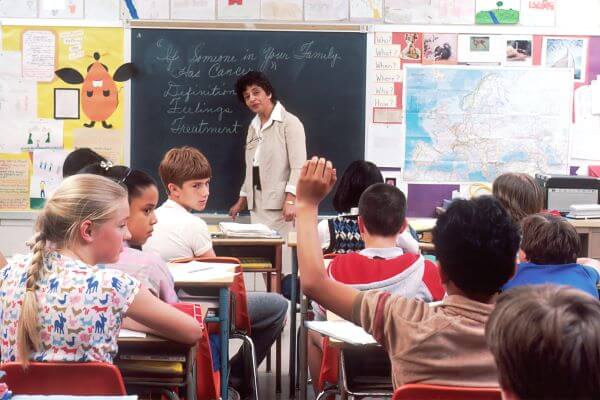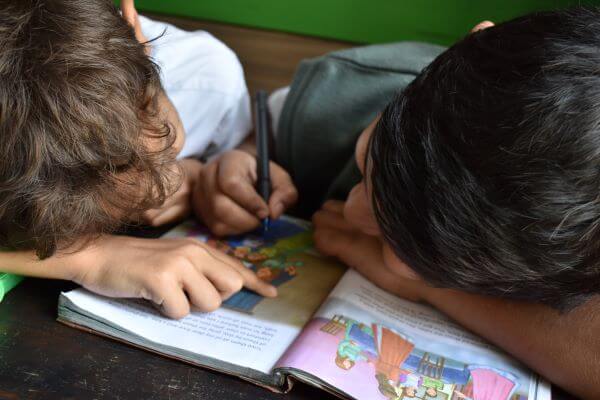What education do we want for our children?
March 22. 2023 0 Comments
- Posted in:
- Education
Education is the foundation of a society's progress and development. School education, in particular, is crucial in shaping the minds of young children and providing them with the knowledge and skills needed to succeed in life. The quality of school education plays a significant role in determining the future of the students, the society, and the nation.
"Teachers always say 'there's no such thing as a stupid question' - but I'm pretty sure some of my classmates are trying to prove them wrong."
The quality of school education



"Teachers always say 'there's no such thing as a stupid question' - but I'm pretty sure some of my classmates are trying to prove them wrong."
The quality of school education
The quality of school education can be defined as the effectiveness of the teaching-learning process, the relevance of the curriculum, the availability of resources, and the overall learning outcomes. A high-quality school education ensures that students receive a well-rounded education that equips them with the skills, knowledge, and values needed to succeed in life.
Qualifications of the teachers
One of the key indicators of the quality of school education is the qualifications and experience of the teachers. Teachers play a critical role in delivering high-quality education to students. They are responsible for designing and implementing a curriculum that meets the needs of the students, assessing their progress, and providing feedback that helps them improve their performance. A well-trained and experienced teacher can motivate and inspire students to achieve their full potential.

"I remember when my teacher said 'I have eyes in the back of my head'. I was so scared until I realized she was just wearing a reflective vest for safety reasons."
Availability of resources
Another important factor that contributes to the quality of school education is the availability of resources such as books, technology, and facilities. A school with adequate resources can provide students with access to a wide range of learning opportunities that enhance their knowledge and skills. This also includes access to extracurricular activities such as sports, music, and drama, which help students develop a range of skills and interests beyond academics.
The relevance of the curriculum
The relevance of the curriculum is also an essential factor in determining the quality of school education. A curriculum that is up-to-date, relevant, and meaningfulto students can inspire them to learn and engage with the subject matter. It is essential that the curriculum is designed to meet the needs of a diverse range of students, including those with different learning abilities, backgrounds, and interests.
The learning outcome
The learning outcomes of students are also a crucial indicator of the quality of school education. High-quality education should result in students acquiring the necessary knowledge and skills to succeed in life. It should prepare them to think critically, solve problems, communicate effectively, and work collaboratively. The learning outcomes should also equip students with the values and attitudes that enable them to be responsible and active members of society.
A high-quality school education ensures that students receive a well-rounded education that equips them with the skills,. It is the responsibility of governments, educators, and communitiesto work together to ensure that every student has access to a high-quality school education that prepares them for the challenges and opportunities of the future.

Difficulties
Despite the importance of high-quality school education, many countries still face significant challenges in providing equal access to education and ensuring that the education provided is of high quality. Some of the challenges that schools face include insufficient funding, inadequate infrastructure, and a shortage of qualified teachers.
In many developing countries, inadequate funding is a significant barrier to providing high-quality education. This often results in a lack of resources, including textbooks, technology, and basic facilities like classrooms and toilets. This makes it difficult for schools to provide students with the kind of education they need to succeed in life.

Another challenge is the shortage of qualified teachers. Many schools struggle to attract and retain qualified teachers due to low salaries, poor working conditions, and a lack of professional development opportunities. This can lead to a situation where students are not receiving the kind of education they need to succeed in life.
In addition to these challenges, schools also need to address issues related to the relevance and adaptability of the curriculum. As the world changes rapidly, the curriculum must also change to reflect new developments and trends. This can be a challenge, especially in countries with limited resources and a lack of expertise in curriculum design and development.
Despite these challenges, there are several steps that governments, educators, and communities can take to improve the quality of school education. These include investing in teacher training and professional development, providing adequate funding for schools, improving the quality of curriculum design and development, and ensuring that schools have access to the necessary resources and infrastructure.
Conclusion
"I asked my teacher for extra credit and she said 'Sure, you can clean the chalkboard after class'. I'm pretty sure that's not what I had in mind."
The quality of school education is essential to the success and progress of students, society, and the nation. It is essential that governments, educators, and communities work together to overcome the challenges that prevent schools from providing high-quality education to all students. By investing in teacher training, providing adequate funding, and improving the curriculum and resources, we can ensure that every student has access to a high-quality education that prepares them for the challenges and opportunities of the future.
